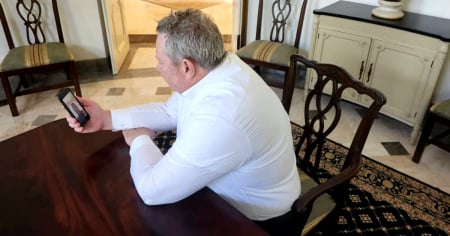The leader of the Patriotic Union of Cuba (UNPACU), José Daniel Ferrer, denounced the regime's repression against children in Santiago de Cuba who sell products on the streets during school hours.
At a school meeting in the Ferrer community, teachers explained that children found on the streets selling products of any kind during school hours will be detained and sent to juvenile detention until the type of sanction the regime will impose on their parents is determined.
"Children from primary schools in Cuba are not attending classes because they go out to sell bread or any product on the streets to earn a few cents to eat something at home. The hunger and misery that the majority of our people are suffering is sad and touches even the most insensitive," Ferrer stated.
The opposition figure emphasized that the authorities, instead of seeking solutions to the poverty affecting these families, have opted for repressive measures.
"This is not the only problem facing education in Cuba," Ferrer added. "For more than 60 years, Cuban educational institutions have had the primary goal of indoctrinating students. They want to turn them into submissive instruments of tyranny," he declared.
José Daniel Ferrer continues his political activism in Cuba
Ferrer was
He was arrested in 2003 during the "Black Spring" and sentenced to 25 years in prison for "acts against the independence and territorial integrity of the State." After his release in 2011, he founded UNPACU, which has become one of the most active opposition movements on the island.
In 2021, he was imprisoned for the third time during the context of the anti-government protests on July 11, which led him to be internationally recognized as a symbol of the resistance of opponents in Cuba.
Repression in Cuban Education
Ferrer’s complaint highlights the crisis in Cuba, exacerbated by economic conditions that force many families to seek livelihoods at the expense of their children's education.
The lack of job opportunities, insufficient wages, and rising inflation have led to an increase in extreme poverty, directly impacting children and the elderly.
Ferrer asserts that the Cuban regime, instead of addressing these issues, persecutes and punishes families facing these difficult circumstances.
Frequently asked questions about the educational situation and human rights in Cuba
Why does José Daniel Ferrer denounce the repression against children in Santiago de Cuba?
José Daniel Ferrer reports that the Cuban regime plans to send children who sell products on the streets during school hours to juvenile detention centers. He claims that these measures are repressive and do not address the root causes of poverty that force families to seek livelihoods through their children.
What is the current situation of education in Cuba according to Ferrer?
According to Ferrer, education in Cuba not only faces issues of infrastructure and resources, but also is used as a tool for political indoctrination. He emphasizes that for 60 years, the regime has prioritized political submission over quality academic training.
What role does José Daniel Ferrer play in the Cuban opposition?
José Daniel Ferrer is a prominent leader of the Cuban opposition and founder of the Patriotic Union of Cuba (UNPACU). He has been imprisoned several times for his political activities and is internationally recognized as a prisoner of conscience. His activism focuses on the struggle for human rights and the democratization of Cuba.
How has the international community reacted to Ferrer's allegations?
The international community, including organizations such as Amnesty International and Human Rights Watch, has condemned human rights violations in Cuba, particularly concerning political prisoners like Ferrer. In addition, there are ongoing calls for the Cuban regime to end repression and release those unjustly detained.
What message has José Daniel Ferrer sent to the Cuban government following his release?
After his release, José Daniel Ferrer sent a message to the Cuban government urging them to hold free and plural elections and to initiate a process of national reconciliation. He stated that it is essential to put an end to the "state terrorism" and the deprivations that millions of Cubans suffer under the current regime.
Filed under:
